Living in an RV full time can be a very comfortable and economical way to live. You can live in RV parks full time for much less than the cost of conventional housing, depending on your choices.
Now that you have decided to live full time in your RV how much it will cost you to live in an RV park?
What are average monthly expenses you will incur? What sort of options should you explore? What choices will best suit your individual lifestyle?
The average cost to live in an RV park will generally range from $500 to $1500 per month, normally with your electricity as an added cost. There is a wide range in average cost because there is a wide range of factors that will affect the pricing.
Your cost will vary based on your location, the size of your RV, season, how long you stay, the amenities you choose and other things.
How Much Does Full Time RV Living Cost? RV living cost breakdown
1: Length of stay
How long you choose to stay in one place will have a big impact on your overall spending.
Your options when choosing a length of stay are:
- Nightly – range from free to $20 to $100 plus per night
- Weekly – range from $250 to $700 plus per week
- Monthly – range from $500 to $2000 plus per month
- Seasonal – range from $300 to $1800 plus per month (usually based on 6 month stay)
- Annual – range from $3600 to $20,000 plus annually
A good rule of thumb is that the longer you stay the better price you are going to get. Most parks offer significant discounts for longer stays.
I have seen seasonal rates under $1500 for parks in the North, which would cover your entire spring/summer stay at a park.
Seasonal up north usually cover from April/May to September/October, with dates of opening and closing varying by park.
Seasonal in the South is usually November/December to April/May.
When you stay in one location for longer periods you also save on the cost of fuel and the time spent un-hooking and hooking up your rig.
2: Your RV
The size and type of your RV will be a factor in how much you will pay for a campsite.
Your charges will vary based on the type of site – back in or pull through – and whether your RV has no slides, single side slides or slides on both sides.
Some campgrounds also charge based on the size of your RV – smaller sites are available at lower charges than large sites.
3: Location
Your choice of geographic location will be a big factor in the price you will ultimately pay for an RV park. Where you choose will depend on you and your individual requirements.
Are you choosing a park to be close to family or friends? Close to work? Are you choosing for the climate of the area? Is price the main factor?
The multitude of reasons people choose different locations is as plentiful as there are people in RV’s.
Generally, smaller towns will have lower rates than larger cities. Less touristy areas will also be less expensive.
4: Season
If you are locating to find favorable weather you are likely a snowbird or a sunbird – heading south to avoid cold northern winters, or the reverse, north in the summer to avoid the scorching heat of summer in the south.
If this is part of why you choose where you choose to park your rig, you are likely going to pay the premium rates of “season” to stay in parks in desirable areas.
Supply and demand dictates that the RV park in sunny Florida is going to cost more in the winter when everyone heads south.
The same will hold true for the beautiful parks up north in the short summer season.
5: Amenities
Like hotels, RV parks offer a wide variety of amenities.
Dry Camping
Some places offer a basic parking spot with no hookups and no facilities. It could be as basic as parking in some ones field or parking lot.
This is called “dry camping” or “boondocking”. There is nothing there except for what your RV provides you.
Normally this would be a short term option, and it is very popular for RV’ers on the move from one site to the next who need a place to stop on the road.
Overnights at Walmart are very popular. Just make sure you use it as its intended – an overnight stop and move on.
The people who overstay their welcomes and abuse the privilege of being allowed to stay are causing some Walmart locations to stop allowing overnight stays.
There are also many festivals and events that you can attend and take advantage of dry camping options. It’s a popular option for music festivals, car races, swap meets etc….
State Parks
The next level up from dry camping is campground’s that provide basic services like water and electric. Often state parks will have campsites that only provide these options.
They often provide additional amenities in the form of picnic tables, bathrooms and showers and dump stations to empty your tanks.
Generally the draw of the state parks is the natural beauty of the campgrounds and to maintain that beauty they keep services limited.
Available electric amperage is sometimes limited in State and basic parks. If you need 30 or 50 AMP to run AC or heat you will want to check on this before booking.
Basic RV Parks
While dry camping and state parks are fun, you will likely want a few more frills if you plan to stay in one spot for a longer period of time.
Certainly the basics of water, sewer and electric hook ups will come in handy.
Most basic RV parks provide these and often you will also find additional bathrooms, laundry rooms and things like paved parking spots.
Deluxe RV Parks
On the high end of the camping experience are the deluxe RV parks. I have seen these go as far as providing personal hot tubs on your site!
Deluxe parks will have all the basics – water, sewer, electric, washrooms, laundry, paved spots – and a huge variety of additional amenities.
Some of the most popular amenities are swimming pools, tennis courts, a club house, work out facilities, kids play zones, marina’s – the list is endless. A deluxe RV park is like a deluxe hotel resort.
There is a growing trend for deluxe RV parks where you can purchase and own your own RV site. These are often oversized parking pads with room for extras like patios, storage sheds, hot tubs.
Normally they will have lots of landscaping for privacy from your neighbors and sometimes a view of a pond or other natural feature.
One I saw in Florida offered the option of building a small permanent casita on your site that could provide a variety of things like extra guest space or an added kitchen/living area.
The price tag for parks like these is often very high, but depending on your wants and needs, it could be something you would consider.
6: Added Expenses (Electric, Cable, Internet, Phone, Propane, Fuel)
Depending on what you choose you will likely have expenses in addition to your park cost that you need to consider in your budget.
Electric
Most overnight and weekly stays will include your electricity cost, but if you plan to stay monthly, seasonally or annually at a park you will pay your electric cost in addition to your rate.
Cable/Satellite
Some parks offer cable TV as an option. It may be included in your rate or an extra cost.
Satellite TV packages are a popular choice with RV’ers as you can pay for a package and connect with the dish on your rig from wherever you are.
Package cost will depend on what you choose with the satellite supplier.
Internet
Most parks now offer wireless internet at your site or in designated areas. Usually it is free or a nominal charge.
You can also choose to pay for an increased package on your cell phone data and use this for internet connectivity as well.
This wouldn’t be ideal if you want to watch Netflix, unless your data in unlimited, but works well for light surfing an email checking.
Phone
The advent of the cell phone made it so much easier to stay connected during RV travel.
In the old days, you would hope for a park that had phone lines available at your campsite and plug in to those if you were lucky.
Now almost everyone has a cell phone and you can travel and talk with ease.
Propane/Fuel
When you are hooked up in a park your costs for fuel will decline. The more you move from place to place the higher your fuel costs will be. You will have to budget according to your travel plans.
Propane costs are generally pretty low even if you are using your fridge and stove solely on gas.
Once you are hooked up to electric, you can switch your fridge over to the electric setting and save some propane usage.
7: Memberships
One thing you could consider if you are going to be doing a lot of camping is joining a membership club. There are a lot of options out there that usually offer discounts at certain parks.
Some of the most popular are:
Good Sam
Offers a 10% discount at 2400 plus parks in the USA and Canada in addition to their roadside services and other benefits.
AAA
Discounts vary by location, as with AAA hotel discounts. AAA also offers roadside services and other benefits.
Escapees
For a $40-$50 annual membership, Escapees RV Club will give you access to discounts of 15 to 50% at their member parks and a directory of areas that you can dry camp or boondock.
Thousand Trails
Thousand Trails has a one-time investment fee of around $6000, which is a big cost so you want to make sure this is the right program for you before you join.
After that your annual dues are around $599 and up will get you stays for free all year at certain campgrounds.
Thousand Trails memberships are by geographic zone so depending on your travel plans you may only need one zone, or you may want to add on to your membership. Stays are free, but are limited to 14 days.
After that you have to exit the park for a certain period before you can return to the same location.
You can also add membership to Encore RV Parks (110 parks) onto your Thousand Trails membership for around $200 annually, giving you even more parks to choose from.
Harvest Hosts
Harvest Hosts are a new club on the RV scene. For $80 to $120 per year they offer overnight dry camping (no hookup) stays at unique places like wineries, breweries, farms, golf courses and other unique locations.
Stays are limited to one night only and there is a code of conduct that they ask you to respect in order for the RV and host relationship to be successful for both sides – ie/ call ahead, arrive in business hours, don’t stay longer than one night… It is a neat concept that I hope to try out in the future.
As you can see there are a multitude of options and budgets for how you can live full time in your RV.
What ever you choose to do, I hope you have wonderful adventures living in your RV!

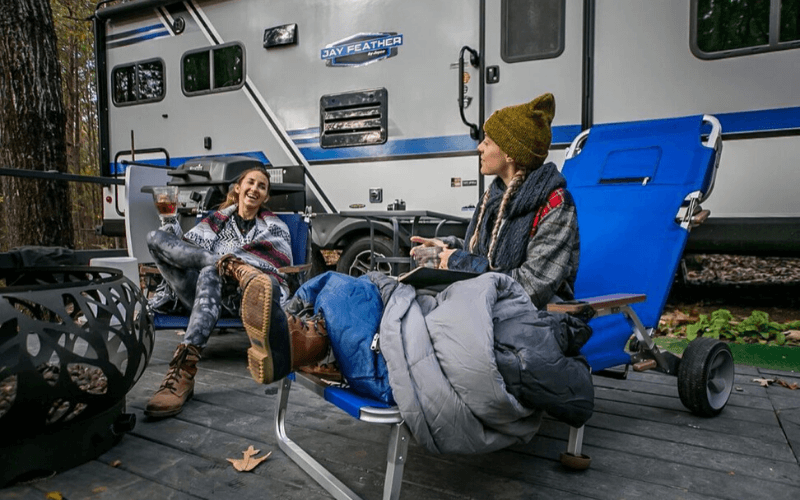
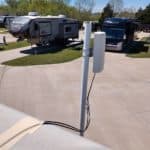
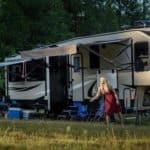
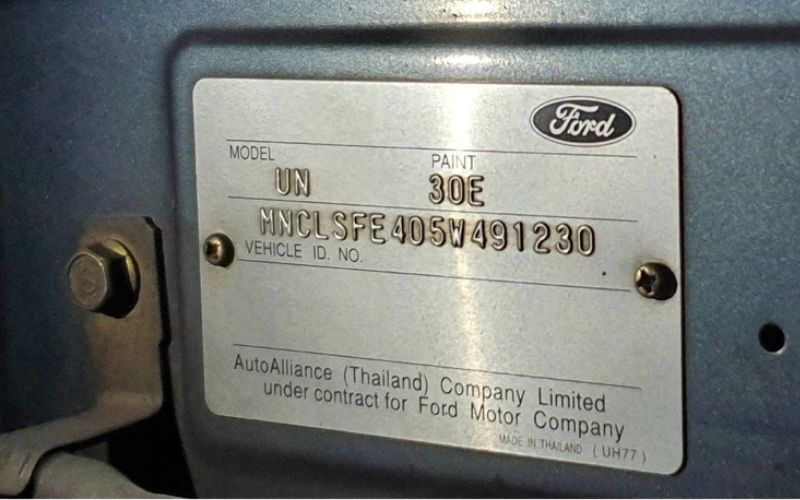
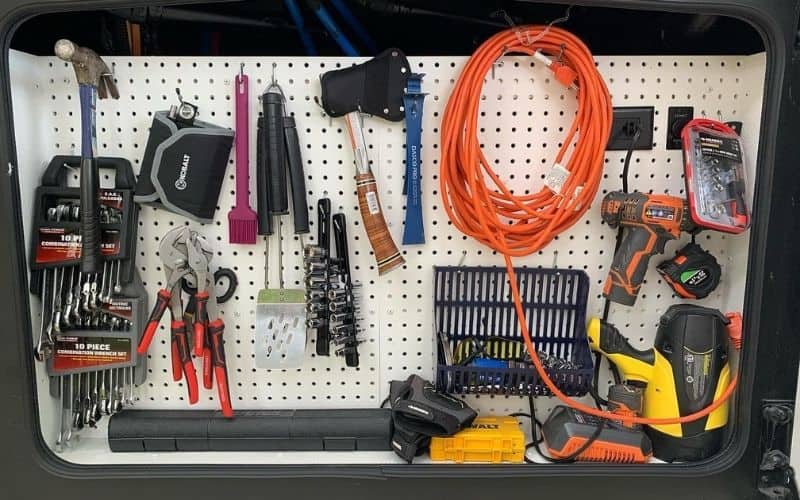

1 Comment
Jorge Jr Hernandez
1 year agoHello I’ve been living in my travel trailer at a friend’s property. And in exchange I would clean, mowed the lawn and several of other things. I’m pretty good with my hands. And have plenty of talent building several different things. Well recently my buddy ended up selling the property. So I was asked to move. And really I’m so lost. When it comes to finding a new place I don’t know where to even start. I really need help with this. If anybody could help it would be highly appreciated. Jorge Hernandez